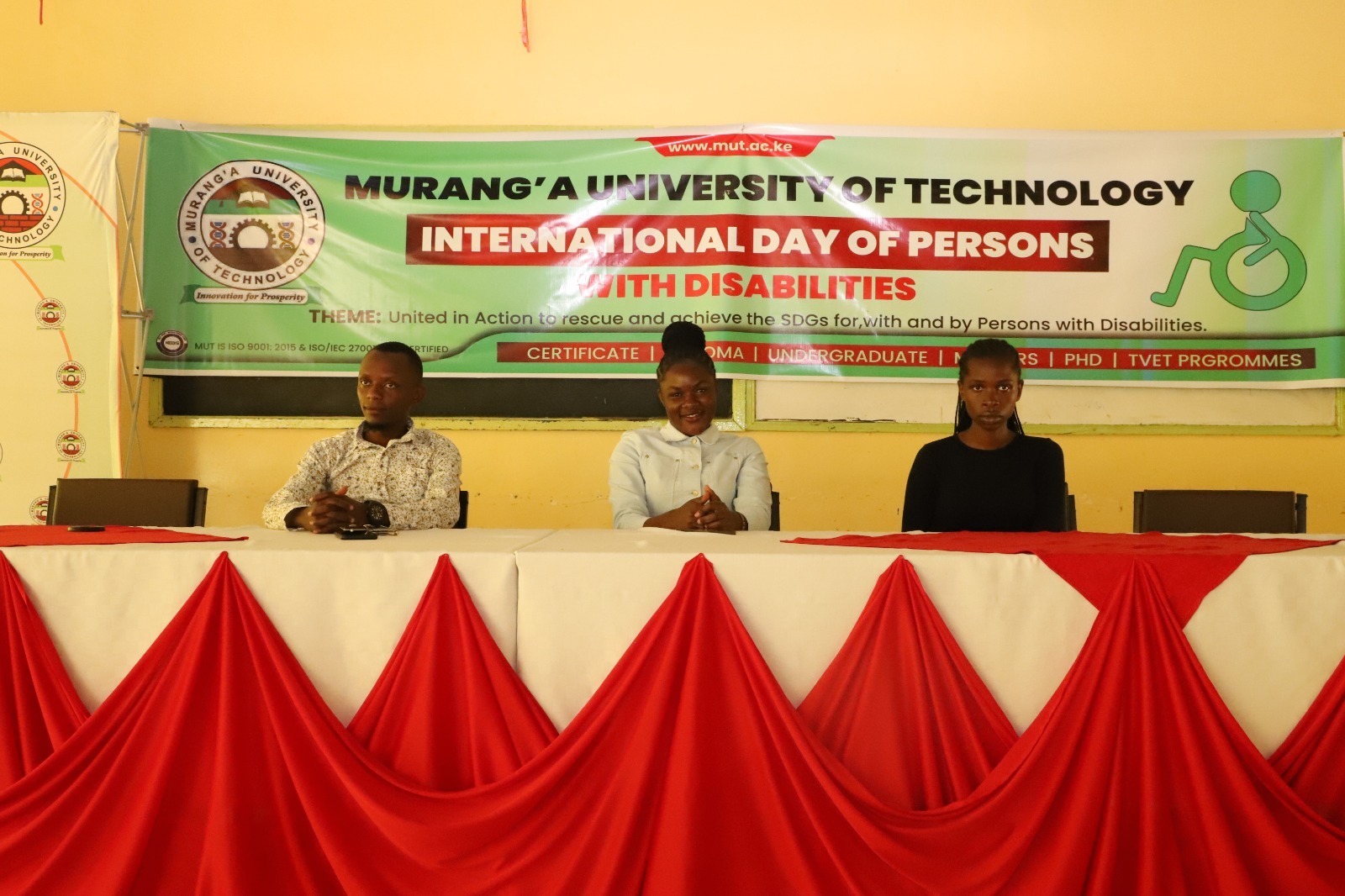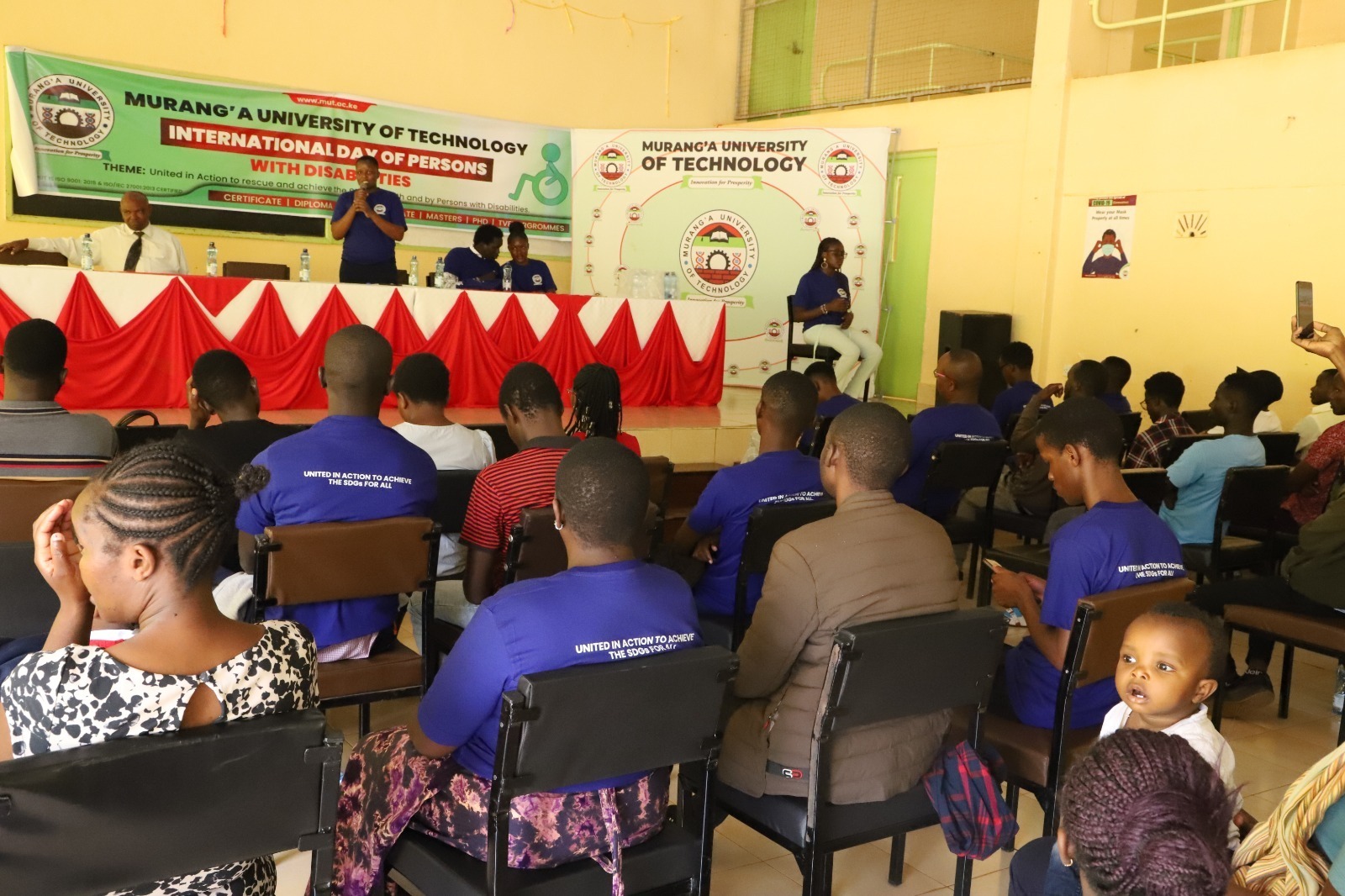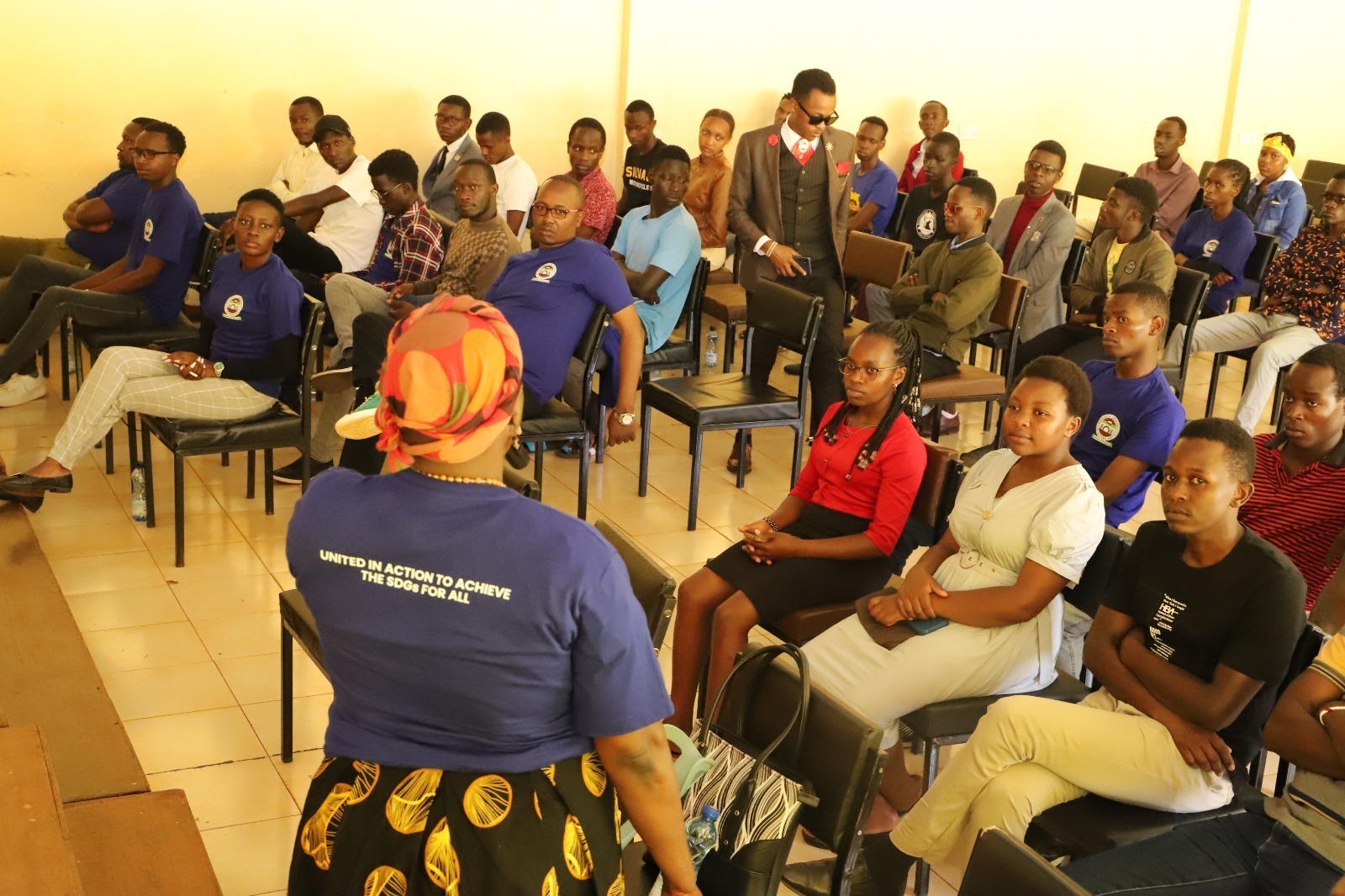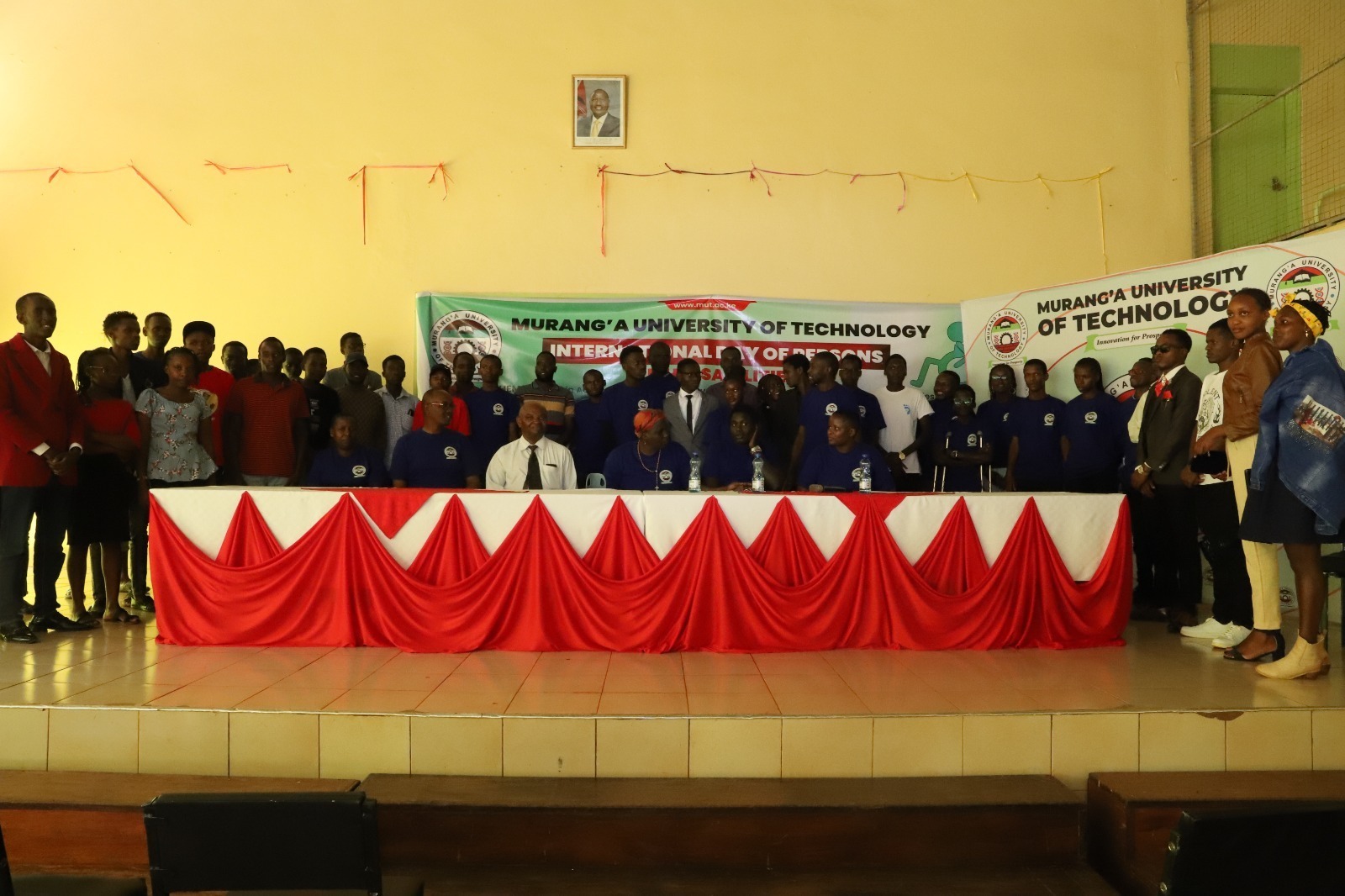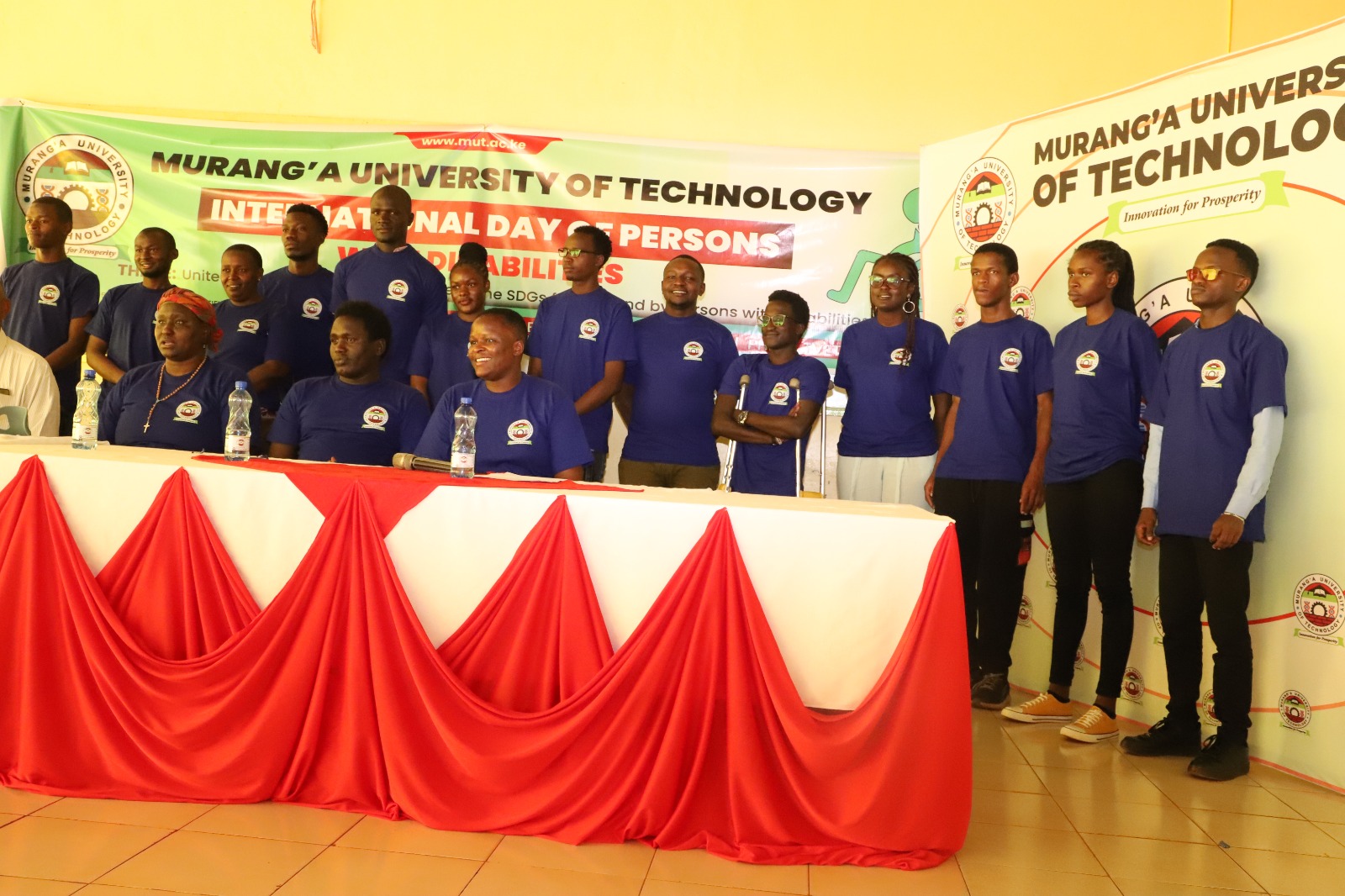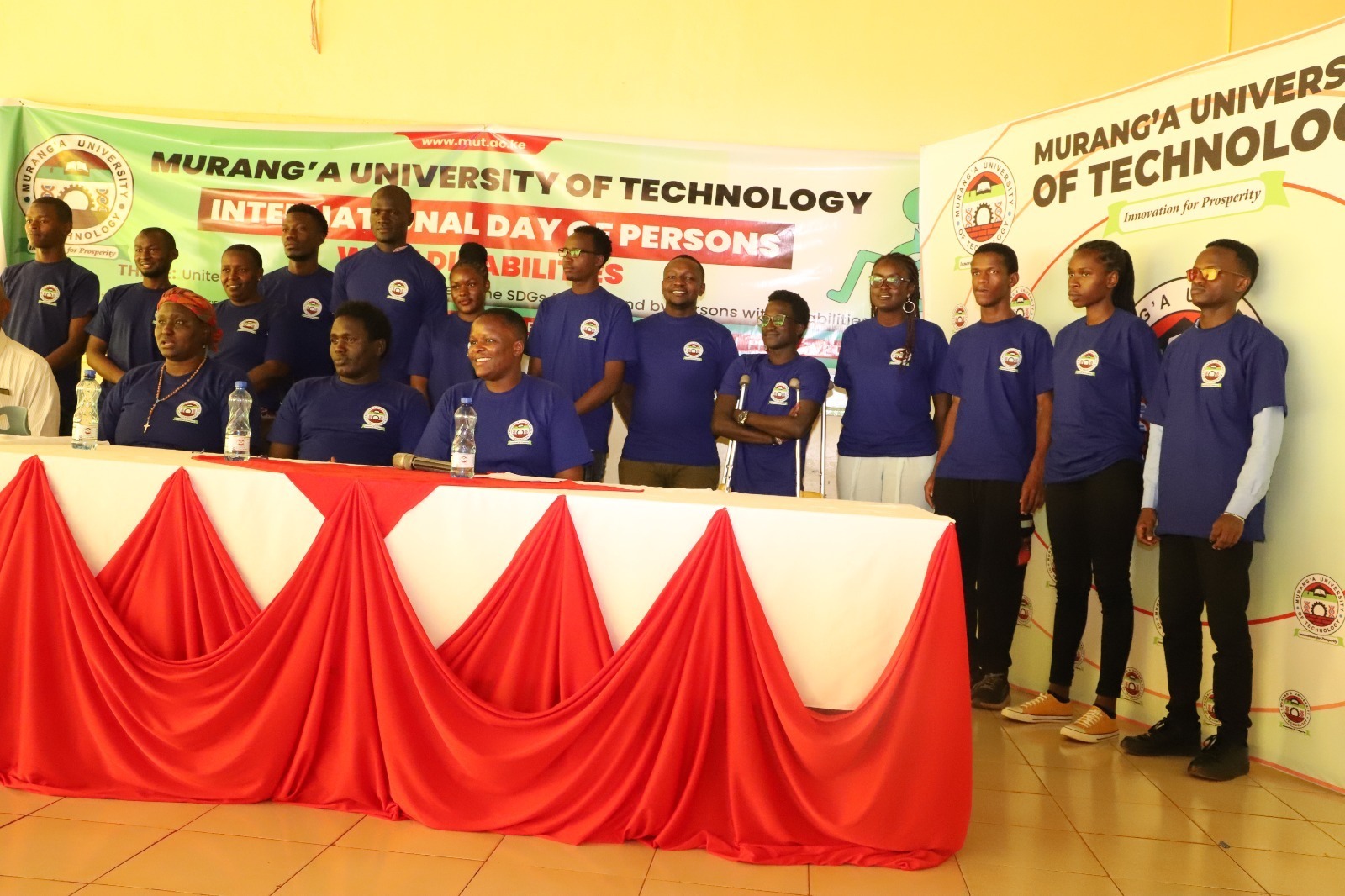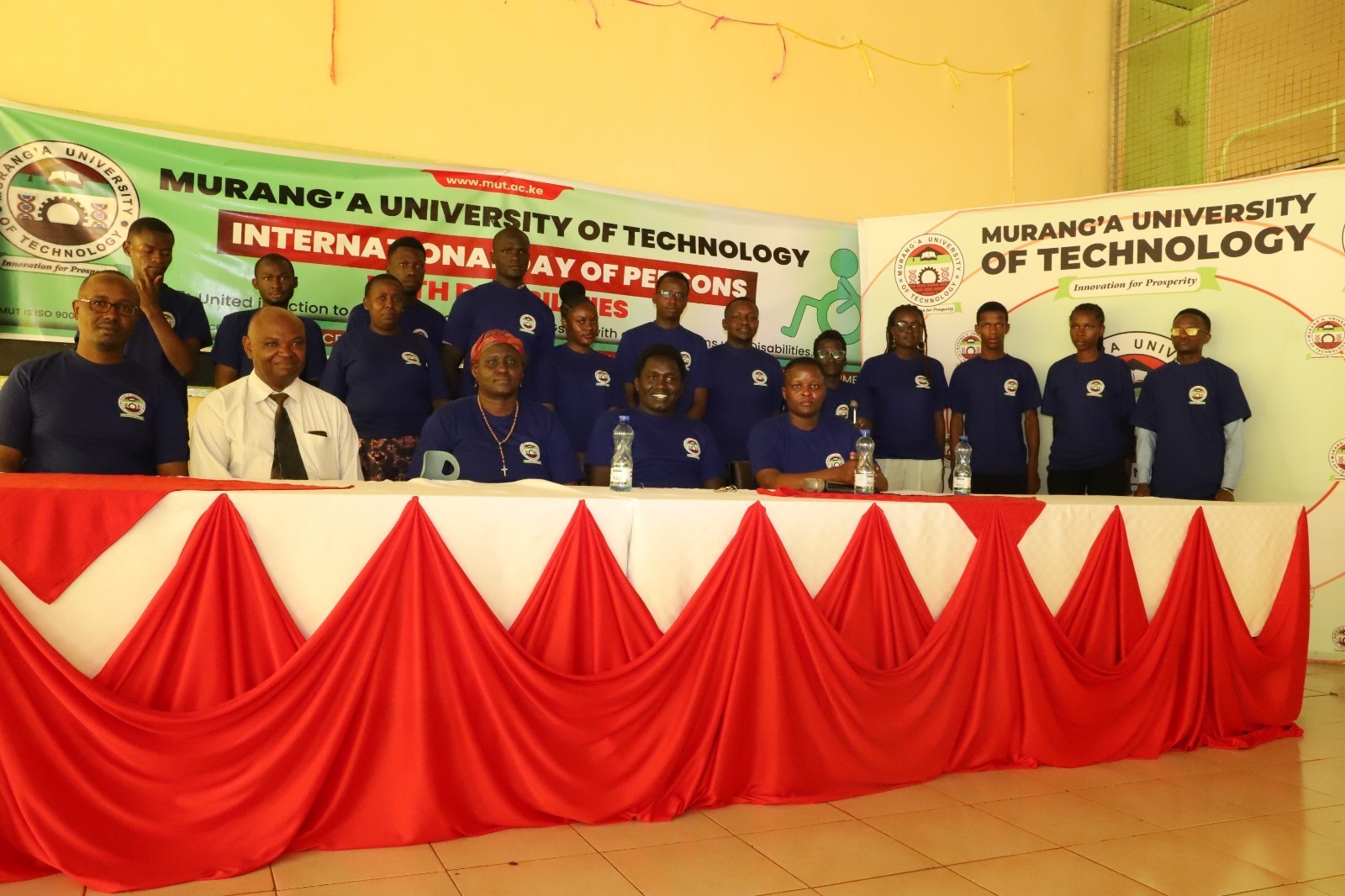Hello, and welcome to Gender and Disability Mainstreaming Department. Murang’a University of Technology is very committed towards realizing inclusiveness, gender equality and disability friendly environment.The office of gender and Disability was established in 2013 to mainstream gender and disability related frameworks within Murang’a University of Technology. The office operates as a Unit under the office of Registrar, Administration and Planning and is headed by a Coordinator. The coordinator operates under the guidance of two committees that is Gender Mainstreaming Committee and Disability Mainstreaming Committee. The unit is also guided by three main policies which include; disability mainstreaming, gender mainstreaming and sexual, gender based violence policies.
The University has taken steps to support students with disabilities, including the appointment of a disability mainstreaming champion who offers mentorship services to build their confidence and improve their academic performance. The office encourages the students with disabilities to participate in student elections and extra curriculum activities; this is a way of creating a sense community and connection between learners hence high engagement.
As the UNESCO says eliminating barriers to enter into higher education is only the first step to ensuring inclusion, the University has strived to make the environment more accessible by putting in place accessible facilities such as washrooms, ramps, tactile lifts, and an accessible University website, as well as accessible learning materials and lecture rooms. These facilities are important making it easier for students with disabilities to excel in their academics. Extra 30 minutes is allocated to students with disabilities in order to encourage them to perform well in their examinations. Furthermore, large print material and exams are offered to students with low vision, preventing them from straining to read the standard font (12).
The University has also installed Non-Visual Desk Access (NVDA) programme to computers in the library to ease access to library resources by students with low vision. The University works with other state agencies such as the National Council for Persons with Disabilities (NCPWD) to sensitize students on disabilities issues so as to promote inclusivity in University education.
The Unit encourages student with disabilities to apply for scholarship/educational assistance from NCPWD using the higher education loan board portal.

